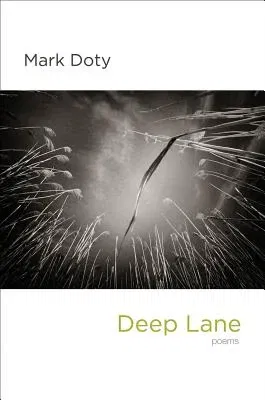Mark Doty's poetry has long been celebrated for its risk and candor, an
ability to find transcendent beauty even in the mundane and grievous, an
unflinching eye that--as Philip Levine says--"looks away from nothing."
In the poems of Deep Lane the stakes are higher: there is more to lose
than ever before, and there is more for us to gain. "Pure appetite," he
writes ironically early in the collection, "I wouldn't know anything
about that." And the following poem answers:
Down there the little star-nosed engine of desire
at work all night, secretive: in the morning
a new line running across the wet grass, near the surface,
like a vein. Don't you wish the road of excess
led to the palace of wisdom, wouldn't that be nice?
Deep Lane is a book of descents: into the earth beneath the garden,
into the dark substrata of a life. But these poems seek repair, finally,
through the possibilities that sustain the speaker aboveground: gardens
and animals, the pleasure of seeing, the world tuned by the word. Time
and again, an image of immolation and sacrifice is undercut by the
fierce fortitude of nature: nature that is not just a solace but a
potent antidote and cure. Ranging from agony to rapture, from great
depths to hard-won heights, these are poems of grace and nobility.

